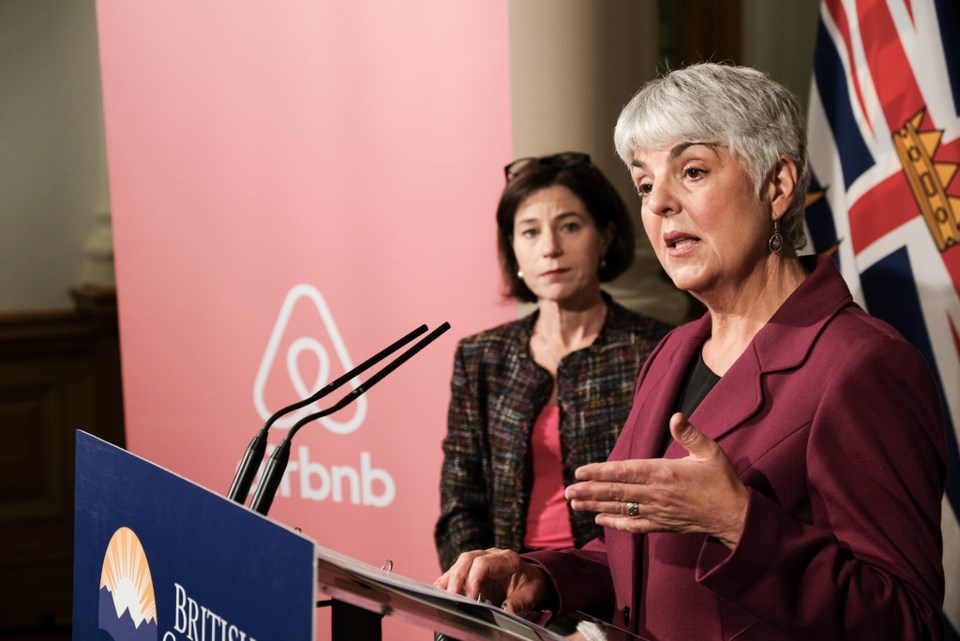The provincial government will begin collecting hotel and provincial sales taxes from short-term home rental company Airbnb, which has listed thousands of bedrooms in Richmond over recent years while long-term vacancy rates remain below one per cent and housing costs soar.
“British Columbians want access to the sharing economy – and they want it to be fair,” announced B.C. Finance Minister Carole James Wednesday.
Province-wide, an estimated $16 million in PST will be remitted annually with an additional $5 million through the Municipal and Regional District Tax (MRDT), otherwise called the hotel tax.
Airbnb volunteered to collect and remit the taxes from its roughly 18,500 providers in B.C., said James.
Local tourist sites — such as the Richmond Olympic Oval’s museum — and future subsidized housing projects are the winners of the new tax agreement, said James.
For instance, in 2016 city council increased its hotel tax from two to three per cent and later announced it would be renovating the Richmond Olympic Experience for $1.4 million, with locally-collected MRDT funds.
James said the PST portion will go toward subsidized housing projects. She acknowledged it is a “small step” but that “every penny counts.”
For example, based on a recently-announced project in Richmond, on No. 2 Road, $16 million will be able to build about 40 units each year (the No. 2 Road project near Dover Park is 80 units with a price tag of $30.4 million).
Coun. Harold Steves has noted in the past that many Chinese language companies also offer Richmond short-term rentals, with little oversight. As do mainstream sites such as Expedia.ca and Booking.com.
James said she could only hope that such websites also volunteer to collect and remit taxes, which can be audited.
“I am certainly welcoming other short-term rental companies to come to the table,” said James.
Media asked James if the tax agreement is legitimizing a practice that is adding fuel to the housing crisis.
“I recognize it’s a reality . . . the sharing economy is here. We need to look, as a government, to ensure the taxes are in place,” said James.
B.C. Green Party leader Andrew Weaver issued a statement questioning the normalization of short-term rentals.
“While this announcement is a good first step from a tax fairness perspective, it will not change behaviour or free up long-term rental stock that has been taken out of the market due to short-term rental services,” said Weaver.
“In our extremely tight rental markets, with near 0 per cent vacancy rates, short-term rentals like Airbnb are taking many units out of long-term rental supply. We are in a crisis - we need to ensure that houses are used for homes for British Columbians first and foremost.”
James said it will remain up to municipalities to regulate short-term rentals. Richmond has done so, limiting the number of homes that can be used as bed and breakfasts. As well, any home owner may rent to up to two people on a short-term basis. Coun. Ken Johsnton wants to shore up those regulations with a licensing/registration system similar to the City of Vancouver.



